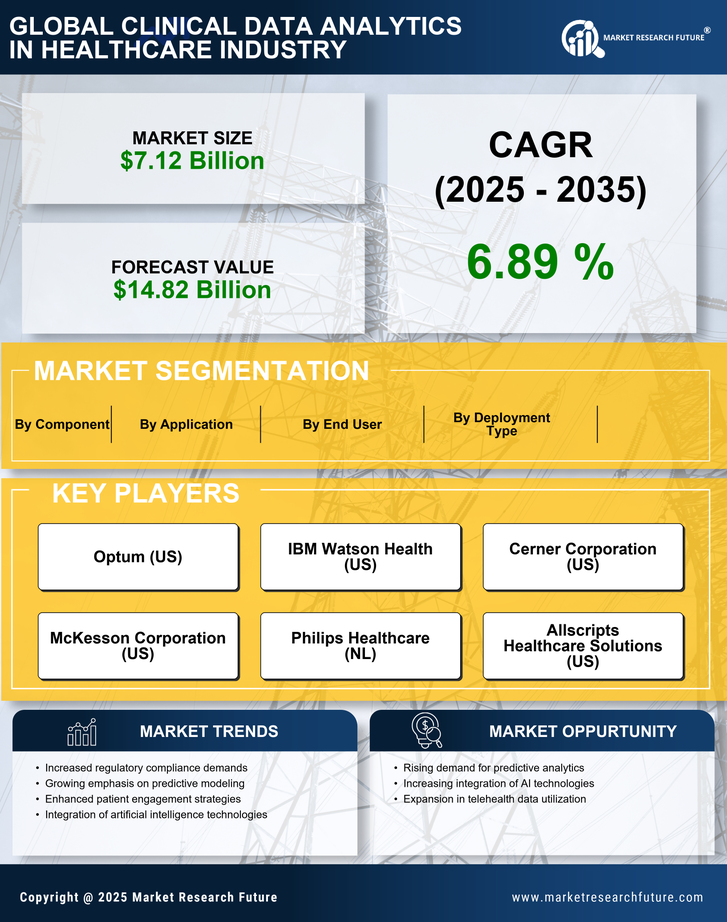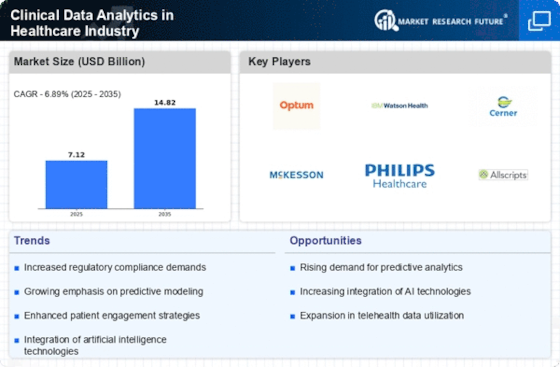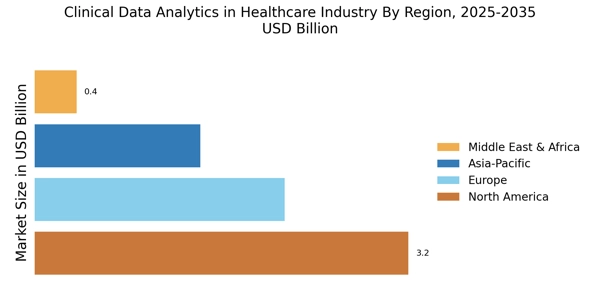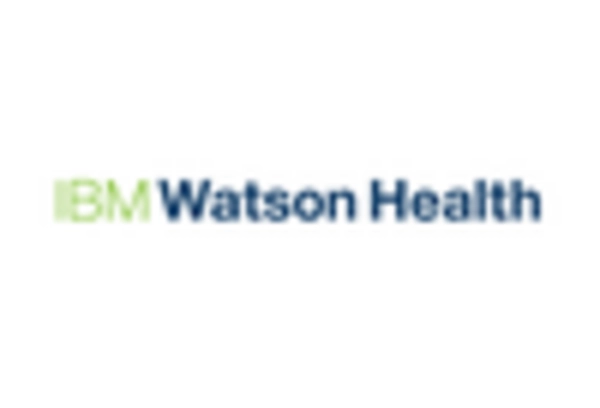Shift Towards Value-Based Care
The transition from volume-based to value-based care is a transformative trend within the Clinical Data Analytics in Healthcare Industry. This shift emphasizes the importance of patient outcomes and cost-effectiveness, prompting healthcare providers to utilize data analytics to measure and improve the quality of care delivered. As healthcare systems increasingly adopt value-based reimbursement models, the demand for analytics solutions that can track performance metrics and patient outcomes is likely to surge. By 2026, it is anticipated that over 50% of healthcare payments will be tied to value-based care initiatives. This paradigm shift not only incentivizes providers to enhance care quality but also drives the need for comprehensive analytics tools that can support these objectives.
Regulatory Compliance and Data Security
The Clinical Data Analytics in Healthcare Industry is increasingly influenced by the need for regulatory compliance and data security. With the rise of data breaches and privacy concerns, healthcare organizations are compelled to adopt stringent measures to protect sensitive patient information. Compliance with regulations such as HIPAA in the United States necessitates robust data governance frameworks and analytics solutions that ensure data integrity and security. As of 2025, it is projected that healthcare organizations will allocate a significant portion of their budgets—approximately 15%—to enhance data security measures. This focus on compliance not only mitigates risks associated with data breaches but also fosters trust among patients, ultimately driving the adoption of analytics solutions that prioritize data protection.
Advancements in Technology and Infrastructure
Technological advancements are significantly shaping the Clinical Data Analytics in Healthcare Industry, driving the adoption of sophisticated analytics tools and platforms. The proliferation of electronic health records (EHRs) and the increasing availability of cloud-based solutions facilitate the collection and analysis of vast datasets. As of 2025, it is estimated that over 90% of healthcare providers utilize EHR systems, which serve as a foundation for data analytics initiatives. Furthermore, the integration of machine learning and artificial intelligence into analytics platforms enhances predictive capabilities, allowing healthcare organizations to identify trends and patterns in patient data. This technological evolution not only streamlines data management processes but also empowers healthcare professionals to derive insights that can lead to improved patient care and operational efficiencies.
Growing Focus on Population Health Management
Population health management is emerging as a critical focus area within the Clinical Data Analytics in Healthcare Industry, driven by the need to improve health outcomes across diverse patient populations. Healthcare organizations are increasingly leveraging analytics to identify health trends, manage chronic diseases, and allocate resources effectively. The ability to analyze large datasets enables providers to implement targeted interventions that address specific health challenges within communities. As of 2025, it is estimated that investments in population health management analytics will exceed 20 billion USD, reflecting a growing recognition of the importance of proactive health management. This trend not only enhances patient care but also contributes to reducing healthcare costs by preventing disease and promoting wellness.
Rising Demand for Data-Driven Decision Making
The increasing emphasis on data-driven decision making within the Clinical Data Analytics in Healthcare Industry appears to be a pivotal market driver. Healthcare organizations are increasingly recognizing the value of leveraging data analytics to enhance operational efficiency and improve patient outcomes. According to recent estimates, the healthcare analytics market is projected to reach approximately 50 billion USD by 2026, indicating a robust growth trajectory. This demand is fueled by the need for actionable insights derived from vast amounts of clinical data, enabling providers to make informed decisions regarding patient care, resource allocation, and treatment protocols. As healthcare systems continue to evolve, the integration of advanced analytics tools is likely to become indispensable for organizations aiming to remain competitive and deliver high-quality care.


















